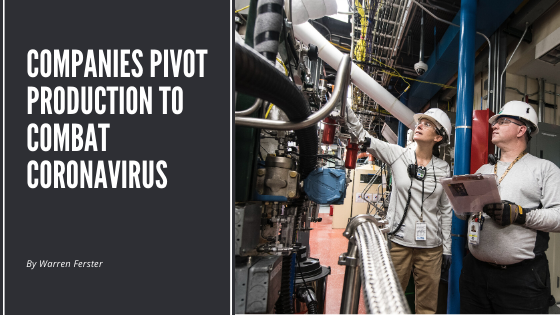Around the world, companies have been utilizing their resources to produce necessary supplies for coronavirus. From hand sanitizer to masks to face guards to ventilators, supplies have been arriving from the most unlikely of sources, and this movement extends to the United Kingdom, too.
While most people would not consider a distillery to be an essential business, they are just one example of companies that now manufacture useful supplies for the COVID-19 pandemic. Companies such as Scottish Scotland’s BrewDog are creating gel hand sanitizer, while others are racing to provide the company that makes Dettol with crucial ingredients. Companies such as Pai, an organic beauty company based in London, and luxury French goods maker Louis Vuitton have temporarily halted the production of beauty products and perfume, focusing instead on adding hand sanitizer to the supply.
It’s not just large companies like Pernod Ricard SA, which produces Absolut vodka and Jameson, that are stepping up, either; local businesses have joined the cause, too. The ability to adapt not only provides crucial supplies but also keeps people employed who would otherwise be out of work during the quarantine.
Most people might not be familiar with U.K.-based Smiths Group Plc, which makes ventilators and has recently ramped up efforts to produce more goods. The company quickly realized it couldn’t keep up with demand alone. So they released their design plans for creating ventilators to be used by carmakers Rolls-Royce Holdings Plc and McLaren Automotive. Both of these manufacturers have been asked by the government to contribute to the manufacture of ventilators.
Dyson, another company, headquartered in the United Kingdom, is best known for its vacuums. However, the company will partner with partnered with The Technology Partnership to make a brand new ventilator design, the CoVent. U.K. company Grey Technologies (Gtech) has also been busy designing a ventilator that can easily be made with off-the-shelf parts rather than specialty parts.
Outside of production, the U.K.’s Department of Transportation is considering medical supply deliveries via drone and alternative modes of transportation.
There’s no arguing that the COVID-19 pandemic has increased anxiety, unrest, and fatigue around the world; however, it has also encouraged creative solutions and unlikely partnerships that the world can benefit from in times without crises.

